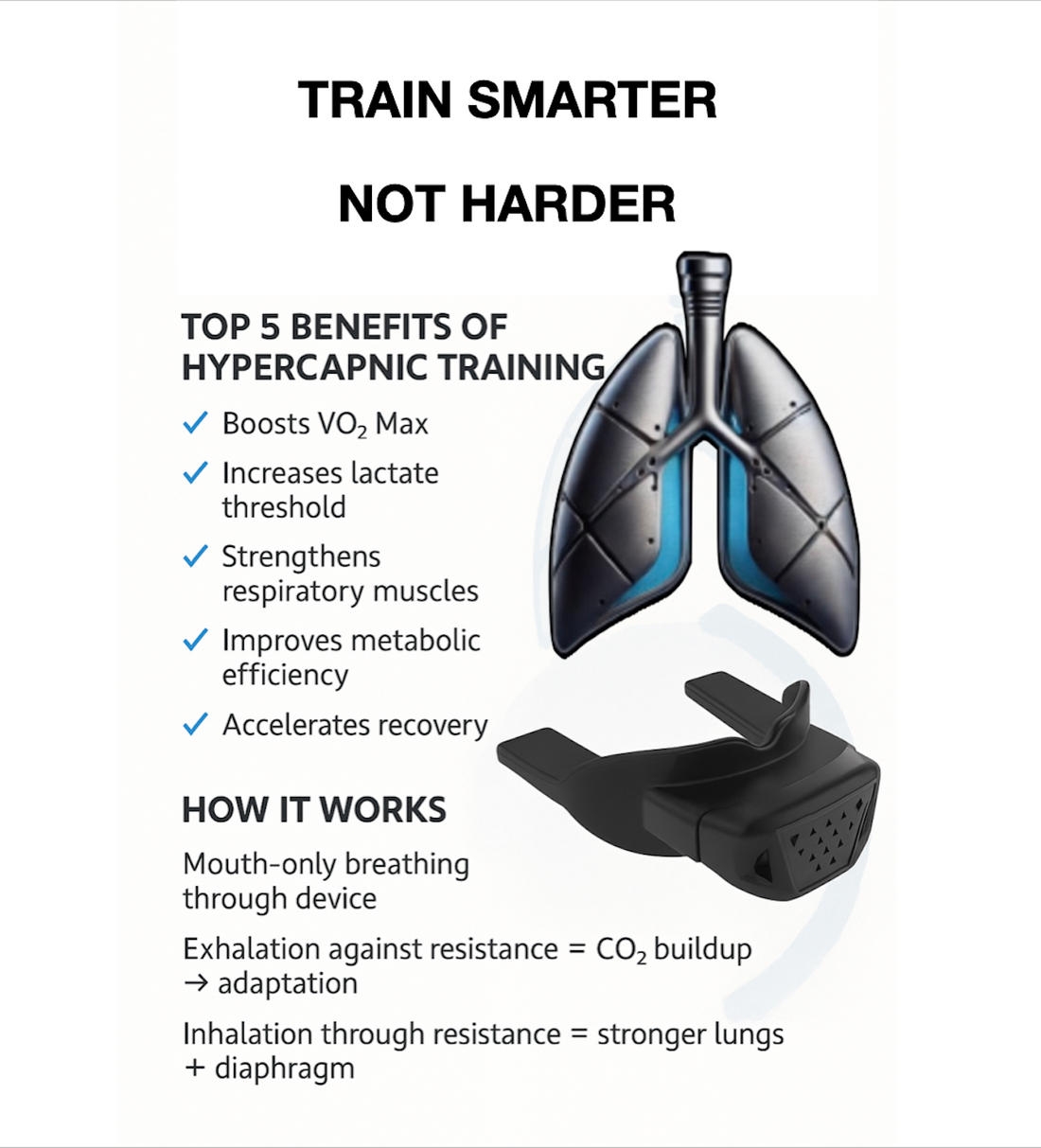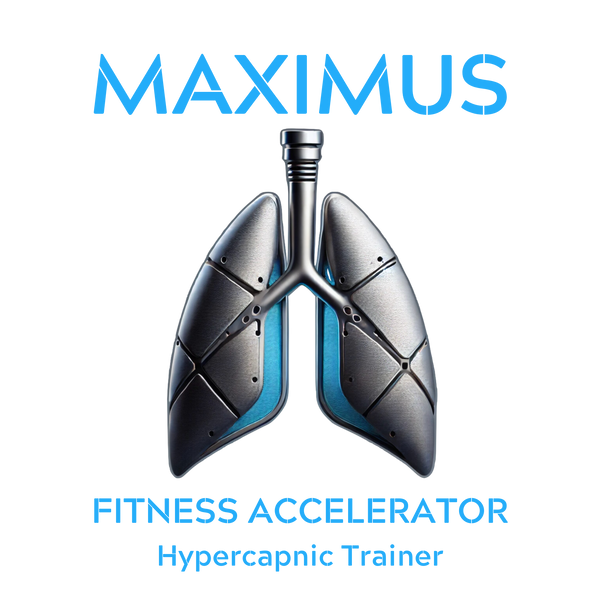
Deep Diaphragmatic Breathing Helps to Relieves Stress & Anxiety - Hypercapnic Device
Share
Managing Stress Through Deep Diaphragmatic Breathing Exercises
Exercising can be a highly effective way to deal with things in your life that are causing stress and anxiety. Researchers have found that regularly engaging in physical activity and exercise can protect people against stress and anxiety while promoting positive emotions.
Exercising can be beneficial for various reasons, including lowering the body's stress hormones, including adrenaline and cortisol, while simultaneously increasing endorphin levels. Endorphins act as the body's "feel-good" chemicals. They act as natural painkillers and play a role in inducing feelings of relaxation while boosting mood.
The CDC - Centers for Disease Control and Prevention recommends getting at least 150 minutes of moderate-intensity aerobic activity, 75 minutes of vigorous-intensity activity, or an equivalent combination every week.
If you can't meet these benchmark goals, any amount or type of exercise is better than no exercise and can benefit your mental health and help to decrease stress and anxiety.
Use MAXIMUS to practice deep breathing while doing light activities like walking, light exercise, and even stretching. You can also use MAXIMUS during moderate to vigorous exercises, significantly impacting your endorphin release and overall sense of well-being.
Prototype users of MAXIMUS consistently report significant stress relief and better sleep, and an overall improved sense of well-being after using MAXIMUS for 8 weeks. Cleveland Clinic Benefits of Deep Diaphragmatic Breathing Exercises
Stress Relief Breathing Exercises: Have you ever noticed how you breathe when you feel relaxed? The next time you are relaxed, take a moment to see how your body feels. Breathing exercises can help you relieve stress and relax.
Deep breathing is one of the best ways to relieve stress in the body. When you breathe deeply, it sends a message to your brain to calm down and relax. The brain then sends this message to your body, and things that happen when you are stressed, such as increased heart rate, fast breathing, and increased blood pressure, all decrease as you breathe deeply to relax.
The way you breathe affects your entire body. Breathing exercises are an excellent way to reduce tension and relieve stress. You can do breathing exercises wherever and whenever you want. You can do different exercises to see which works best for you.
There are many breathing exercises you can do to help relieve stress and relax.
All of these exercises can help you relax and relieve stress.
Here are some breathing exercises to get you started.
Box Breathing
- Inhale slowly through your nose while counting to 4 in your head, filling your lungs with more air each second.
- Hold your breath for a count of 4.
- Slowly exhale through the MAXIMUS device, focusing on fully exhaling all air out of your lungs, however long it takes.
Box breathing is a common technique used during meditation breathing, a prevalent method of finding mental focus and relaxation.
Deep Diaphragmatic Breathing
- Lie on your back and either bend your knees over a pillow or sit in a chair.
- Place one hand flat against your chest and the other on your stomach.
- Take slow, deep breaths through your nose, keeping the hand on your chest still as the hand on your stomach rises and falls with your breaths.
- Next, slowly exhale fully through the MAXIMUS device
- Eventually, you want to be able to breathe in and out without your chest moving using belly breathing only.
- After doing this a few times, slow down your exhale to be twice as long as your inhale.
Key Takeaways
Try these breathing exercises; no matter which type of breathing exercise you prefer, the evidence is clear that breathing exercises can help you relieve stress, relax and sleep better. MAXIMUS promotes intense, diaphragmatic breathing.
